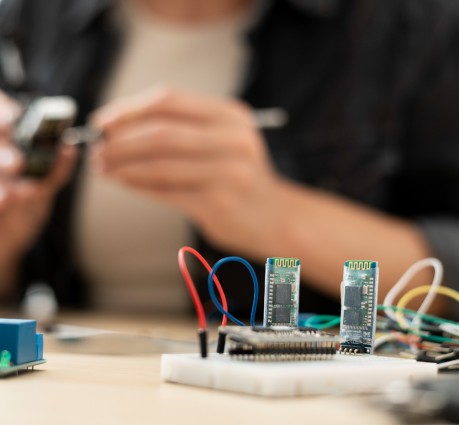The Department of Electrical and Electronics Engineering (EEE) was established in 2013, coinciding with the inception of Rabindranath Tagore University. The programme is designed to prepare engineers with a strong foundation in electrical engineering and a comprehensive understanding of electronics. Since its establishment, the department has been dedicated to providing quality education, practical training, and research opportunities at the undergraduate, postgraduate, and doctoral levels. The curriculum focuses on key areas of Electrical and Electronics Engineering, with special emphasis on the design, development, and application of electrical and electronic systems. The Faculty of Engineering and Technology is committed to fostering a research-oriented and innovation-driven academic environment, guided by visionary and inclusive leadership. The department strives to advance technology and its applications across various disciplines, including Electronics and Communication Engineering and Mechanical Engineering. The department is supported by a team of highly qualified, experienced, and motivated faculty members who specialize in areas such as Instrumentation, Control Systems, Power Systems, Power Electronics, and Energy Systems, ensuring holistic development and professional competence among students.
Duration of programme
Level of Study

Power Systems & Energy Management: Learn about power generation, transmission, smart grids, and energy-efficient systems.
Electronics: Gain skills in analog and digital electronics, embedded systems, and modern electronic devices.
Control & Automation: Hands-on experience with control systems, PLCs, and industrial automation.
Renewable & Sustainable Technologies: Explore solar, wind, and other renewable energy systems for a sustainable future.
12th with Mathematics
Diploma in any Discipline